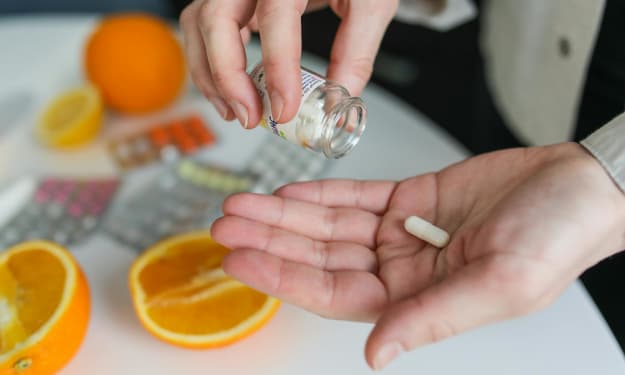Sugar: The Sweet, the Bad, and the Ugly
Finding the Right Balance for a Healthier Life

Sugar.
Sweet, like honey... like the whole life, but if there is no common sense, then everything can turn very bitter.
But how and actually why?
Sugars are a type of carbohydrate that provides energy to our body. They are found in a variety of foods, including fruits, vegetables, grains, and dairy products. While sugars are an essential part of our diet, too much of it can be harmful to our health. In this article, we will discuss the different types of sugars, their benefits and risks, and which one is the most recommended for everyday use.
Types of sugars
Sugars can be divided into two categories: simple and complex. Simple sugars are composed of one or two sugar molecules, while complex sugars are made up of many sugar molecules. The three most common types of simple sugars are glucose, fructose, and galactose.
Glucose is the primary source of energy for our bodies. When we consume carbohydrates, our body breaks them down into glucose, which is then used to fuel our cells.
Fructose is a sugar found in many fruits and vegetables, as well as in honey and high-fructose corn syrup. While it is also used as a source of energy by our body, excessive consumption of fructose has been linked to several health problems, including obesity, type 2 diabetes, and non-alcoholic fatty liver disease.
Galactose is a sugar found in milk and other dairy products. Our body converts it into glucose, which is then used for energy.
Complex sugars, also known as polysaccharides, are composed of many sugar molecules linked together. Examples of complex sugars include starches, which are found in grains and vegetables, and glycogen, which is stored in our muscles and liver.
Benefits of sugars
Sugars provide energy to our body, which is essential for carrying out daily activities. Glucose, in particular, is the primary source of fuel for our brain and nervous system. Without enough glucose, our brain function can be impaired, leading to confusion, dizziness, and other symptoms.
In addition to providing energy, sugars also play a role in the taste and texture of food. They can enhance the flavor of fruits and vegetables, making them more appealing to eat. Sugars can also be used as a preservative, helping to extend the shelf life of certain foods.
Risks of sugars
While sugars are an important part of our diet, excessive consumption of sugar can have harmful effects on our health. Consuming too much sugar can lead to weight gain and obesity, which are risk factors for several chronic diseases, including type 2 diabetes, heart disease, and certain types of cancer.
In addition to weight gain, consuming too much sugar can also lead to dental problems, such as cavities and gum disease. This is because the bacteria in our mouth feed on sugar, producing acid that can erode our teeth over time.
Finally, consuming too much sugar can also lead to an increased risk of non-alcoholic fatty liver disease, a condition in which fat accumulates in the liver, leading to inflammation and damage.

Recommended sugar intake
The World Health Organization recommends that adults and children limit their intake of free sugars to less than 10% of their total energy intake. Free sugars refer to sugars that are added to food and drinks, as well as sugars that are naturally present in honey, syrups, and fruit juices. This equates to around 50 grams, or 12 teaspoons, of sugar per day for adults.
For optimal health, it is recommended that we consume most of our sugar from natural sources, such as fruits and vegetables, rather than from added sugars in processed foods and drinks. This is because fruits and vegetables also provide essential nutrients, such as vitamins, minerals, and fiber, that are important for maintaining good health.
Which sugar is most recommended for everyday use?
Of the different types of sugars, natural sugars found in fruits and vegetables are the most recommended for everyday use. Unlike added sugars in processed foods and drinks, natural sugars in fruits and vegetables come packaged with essential nutrients, such as vitamins, minerals, and fiber, which are important for maintaining good health.
For example, a medium-sized apple contains about 19 grams of natural sugar, but it also provides 4 grams of fiber, which can help regulate blood sugar levels and promote feelings of fullness. Similarly, a medium-sized banana contains about 14 grams of natural sugar, but it also provides potassium, which is important for maintaining healthy blood pressure.
While it is okay to enjoy treats that contain added sugars in moderation, such as a piece of cake or a cookie, it is important to limit our intake of added sugars overall. Many processed foods and drinks, such as flavered soda, candy, and baked goods, contain high amounts of added sugars and can contribute to weight gain and other health problems if consumed regularly.
In summary, sugars are an essential part of our diet and provide energy to our body. However, excessive consumption of sugar can have harmful effects on our health, including weight gain, dental problems, and an increased risk of chronic diseases. To promote optimal health, it is recommended that we limit our intake of added sugars and consume most of our sugar from natural sources, such as fruits and vegetables, which provide essential nutrients in addition to sugar.
And finally, this is my favorite sugar at below, which I have been using for a long time. it's not only sweet, but organic, and really delicious.
About the Creator
Laszlo Hatvani
To be useful in the world, - I already felt this as a moral foundation in my childhood. In my opinion, the purpose of art is not only self-expression, but rather the improvement of the world and people through given experience.






Comments
There are no comments for this story
Be the first to respond and start the conversation.